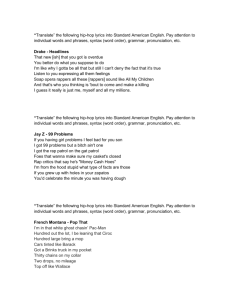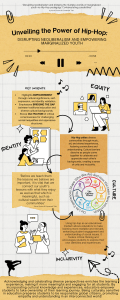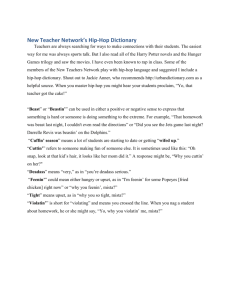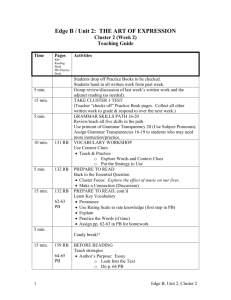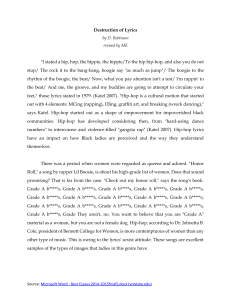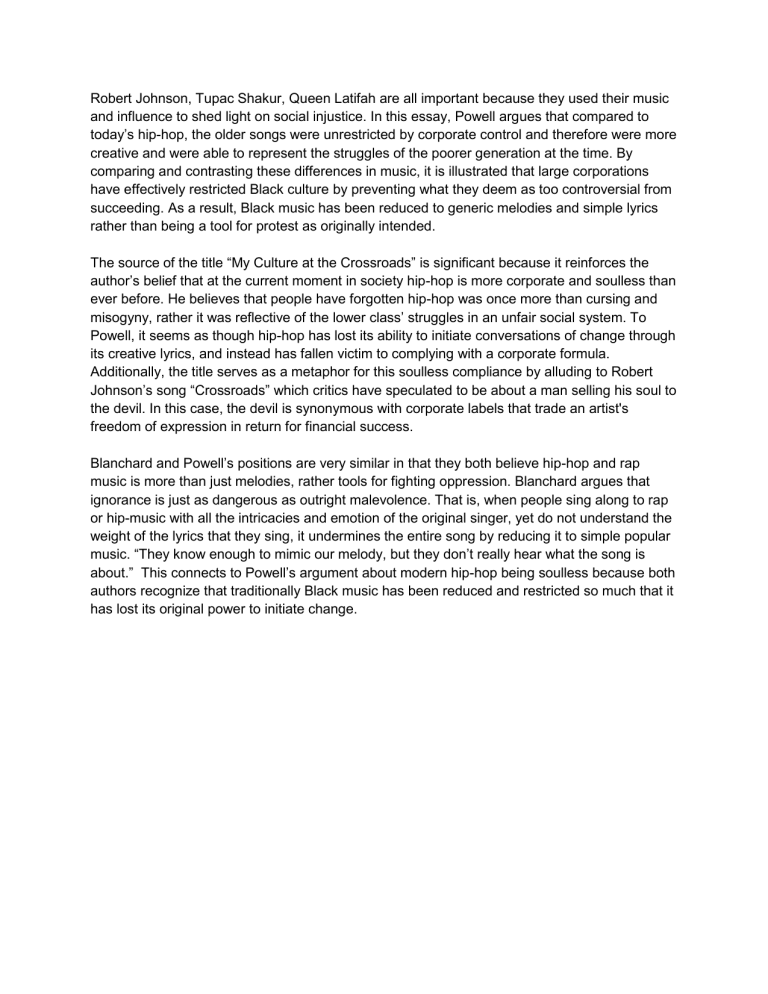
Robert Johnson, Tupac Shakur, Queen Latifah are all important because they used their music and influence to shed light on social injustice. In this essay, Powell argues that compared to today’s hip-hop, the older songs were unrestricted by corporate control and therefore were more creative and were able to represent the struggles of the poorer generation at the time. By comparing and contrasting these differences in music, it is illustrated that large corporations have effectively restricted Black culture by preventing what they deem as too controversial from succeeding. As a result, Black music has been reduced to generic melodies and simple lyrics rather than being a tool for protest as originally intended. The source of the title “My Culture at the Crossroads” is significant because it reinforces the author’s belief that at the current moment in society hip-hop is more corporate and soulless than ever before. He believes that people have forgotten hip-hop was once more than cursing and misogyny, rather it was reflective of the lower class’ struggles in an unfair social system. To Powell, it seems as though hip-hop has lost its ability to initiate conversations of change through its creative lyrics, and instead has fallen victim to complying with a corporate formula. Additionally, the title serves as a metaphor for this soulless compliance by alluding to Robert Johnson’s song “Crossroads” which critics have speculated to be about a man selling his soul to the devil. In this case, the devil is synonymous with corporate labels that trade an artist's freedom of expression in return for financial success. Blanchard and Powell’s positions are very similar in that they both believe hip-hop and rap music is more than just melodies, rather tools for fighting oppression. Blanchard argues that ignorance is just as dangerous as outright malevolence. That is, when people sing along to rap or hip-music with all the intricacies and emotion of the original singer, yet do not understand the weight of the lyrics that they sing, it undermines the entire song by reducing it to simple popular music. “They know enough to mimic our melody, but they don’t really hear what the song is about.” This connects to Powell’s argument about modern hip-hop being soulless because both authors recognize that traditionally Black music has been reduced and restricted so much that it has lost its original power to initiate change.
